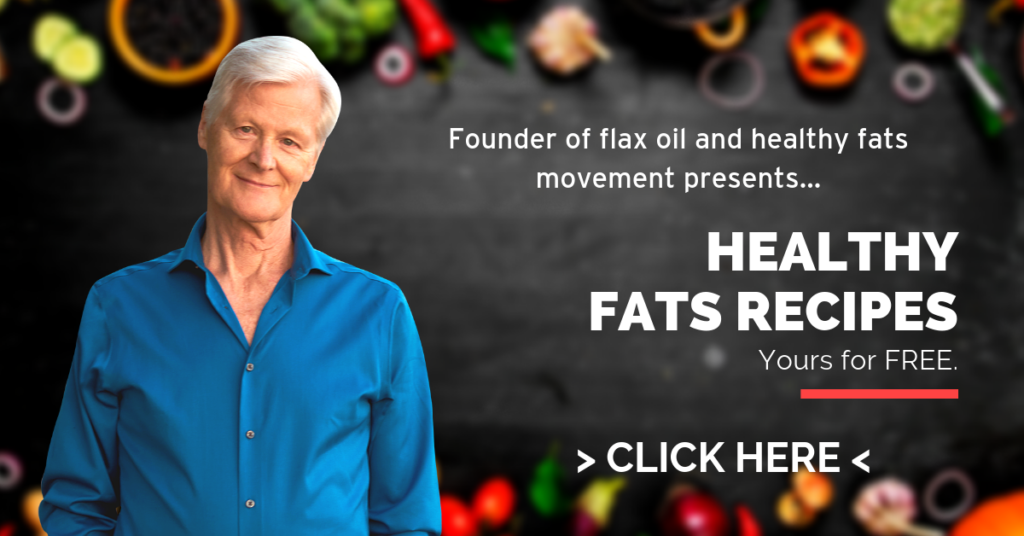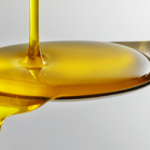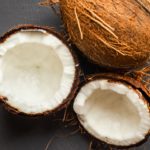More Cholesterol Controversy, Part 3

Since making cholesterol requires energy, some researchers suggest that having cholesterol in our diet is an evolutionary advantage, and claim that meat, egg, and dairy eaters are better adapted for survival than vegetarians. However, the fact that so many people have cholesterol-containing deposits in their arteries has led other researchers to provide different explanations:
-that humans cannot metabolize large amounts of dietary cholesterol effectively;-that the mechanism which regulates our body’s cholesterol levels does not compensate well for dietary cholesterol; or
-that high meat diets contain too little cholesterol-removing fiber.
More topics for further research
Proponents of orthomolecular nutrition suggest that the ‘cholesterol’ problem is really caused by dietary deficiencies of micronutrient vitamins and minerals required to properly metabolize cholesterol in our body. Researchers have shown that diets that are moderately high in cholesterol, which also include sufficient quantities of all vitamin and mineral micronutrients, keep blood cholesterol levels normal and prevent atherosclerosis.

Orthomolecular therapists lower high blood cholesterol levels simply by giving high doses of certain vitamins and minerals. Clinical evidence shows that atherosclerosis can be reversed by exercise, dietary manipulation, and a micronutrient supplement. Vitamins C and B3 can lower a blood cholesterol level of 260 mg/dl by about 50 mg each. The minerals calcium, zinc, copper, and chromium are also helpful. Essential and other highly unsaturated fatty acids in their natural state can lower high cholesterol levels by up to 25%. Some types of dietary fiber also lower cholesterol levels by removing more from the body or inhibiting its production.
Researchers at the Loma Linda School of Nutrition have explained the high incidence of atherosclerosis among meat eaters in a different way. They believe that man is by nature a vegetarian whose body does not know how to metabolize dietary cholesterol, much like his ancestors, the tropical primates. Strict vegetarians have less than one-quarter of the meat eaters’ rates of death from cardiovascular disease (CVD), and people who include eggs and dairy products but exclude meat from their diets have only a slightly lower risk of death from CVD than meat eaters if they don’t take nutritional supplements.
Resolution
Perhaps orthomolecular nutritionists and vegetarians are saying the same thing. A natural vegetarian diet is a richer source of vitamins, minerals, EFAs, and fiber than a non-vegetarian diet. Muscle meats and dairy products contain fewer minerals and vitamins, less EFAs, more saturated fatty acids, and no fiber. Eggs are nutrient-dense but contain no fiber. Meat, eggs, and dairy products are poor sources of vitamin C and B3, w3 fatty acids, and fiber, which are all important to cardiovascular health. When meat, eggs, and dairy products are augmented with the missing vitamin and mineral factors from vegetables, juices, or supplements, they present fewer cardiovascular problems.
Neither animal eaters nor plant consumers need fear CVD if they take their foods from unrefined natural sources, and especially if they supplement with C, B3, w3, and fiber, and the rest of the substances long known to be essential for our health. Refined sugars, refined starches, hard fats, and refined, denatured oils from which vitamins, minerals, fiber, and protein have been removed should be expected to create problems. Sugar consumption and high serum triglycerides correlate with cardiovascular deaths at least as highly as do serum cholesterol levels.

The Dark Side of Cholesterol
Cholesterol has been given so much attention by the medical profession over the last 35 years that the word ‘cholesterol’ is automatically (and wrongly) equated with cardiovascular disease because it is often found deposited, along with fats, the protein fibrin, and calcium, in the inner lining (the intima) of human arteries, where it narrows them.
Theories
There are several theories about the causes of cardiovascular problems: one believable current theory suggests that arterial walls are first damaged by free radicals in our bloodstream, and that cholesterol deposition is part of a mechanism that attempts to repair this damage. A second theory focuses on unnaturally rapid cell division (proliferation) in arterial walls. A third theory revolves around deficiency of micronutrient minerals and vitamins that destroy free radicals. A fourth theory blames oxidized cholesterol and triglycerides – produced when antioxidant (AO) levels in our blood are low – for causing arterial damage and thickening. A fifth theory blames increased consumption of refined, nutrient-poor sugars.
A Unifying Theory?
A unifying theory has been proposed by the team of Drs. Rath and Pauling – the latter is the only living winner of two unshared Nobel prizes (for Chemistry and Peace) and a humanitarian: “The purpose of my work is to minimize human suffering,” he says. Rath and Pauling suggest that thickening arteries and cardiovascular disease revolve primarily around lack of vitamin C. Their theory turns orthodox cholesterol dogma on its head with its simplicity. Briefly, it goes like this.
Vitamin C Functions
Vitamin C plays several key roles in the human body. It is required for the synthesis of the ‘glue’ that surrounds our cells (mucopolysaccharides), makes them cohesive, and keeps our tissues from falling apart and landing on the floor in a pile of individual cells. In this role, vitamin C is important for tissue integrity and the prevention of invasion by foreign organisms and cancer cells.
Vitamin C is the strongest antioxidant (reducing agent) normally present in our body. In this function, it prevents oxygen and free radicals from damaging our cells and tissues. It also recharges other important AOs, notably oil-soluble vitamin E and water-soluble glutathione, allowing them to be reused many times. It also protects many B vitamins and other substances in our body from oxidative destruction. As such, vitamin C is ‘king of the AOs’.
Vitamin C is necessary for the production of the proteins collagen and elastin (specifically, the hydroxylation of the amino acids lysine and proline), which keep our arteries, bones, teeth, cartilage, scar tissue, and other tissues strong. Lack of vitamin C results in weakened tissues. Tissue strength is particularly important in our arteries, since they are constantly under pressure. Lack of vitamin C (scurvy) results in weakened arteries and bleeding into tissue spaces.

Vitamin C, Genes, and Nature
Most animals can make vitamin C from glucose. They normally make several grams per 100 pounds of body weight, and can increase vitamin C production in response to infection, stress, or free radical-producing toxic influences.
Unlike most animals, human beings cannot make vitamin C from glucose. A genetic mutation in humanity’s ancestors about 40 million years ago deprived us of that ability.
Vitamin C and Health
To be healthy, we require the same large amounts of vitamin C as other organisms but, because our body cannot make it from glucose, we must get all this vitamin C from foods. Only a diet rich in fresh greens and fruits can provide the necessary amounts, and under certain situations of stress, no amount of such foods can provide enough vitamin C to equal what animals under stress normally produce.
But we do not eat a diet of fresh greens and fruits. Our diets have become deficient in vitamin C by storage and processing, and we have turned to other kinds of foods – meat, dairy, eggs, beans, grains – that are lower in vitamin C. As a result of vitamin C deficiency, our body develops a weakness of the connective tissues (scurvy) in our arteries. Scurvy must have killed many, many people in ice ages, when vitamin C was almost impossible to obtain in quantities sufficient for health.
In the next post, I’ll explain how cholesterol protects us. For more info on cholesterol and — and other fats that are actually good for you — order my book Fats That Heal, Fats That Kill.





